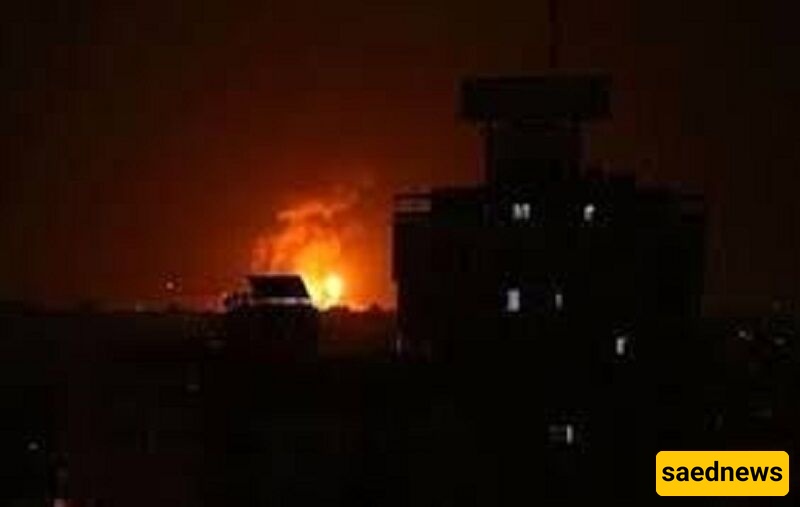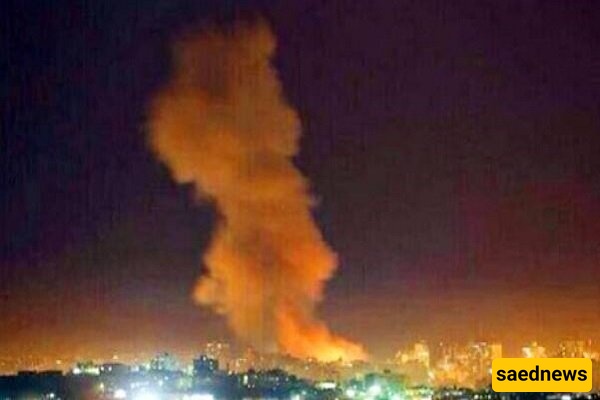SAEDNEWS: A powerful explosion has struck the U.S. military’s Victoria base near Baghdad International Airport, highlighting renewed instability in Iraq and escalating regional tensions following Washington’s shifting military posture.

According to Saed News, Iraqi media outlets have reported a large explosion at the Victoria military base, a key U.S. installation located adjacent to Baghdad International Airport. While official details remain sparse, local sources suggest the base was directly targeted in what appears to be a deliberate attack.
The Victoria base has long served as a strategic American foothold in the capital and is emblematic of the enduring — and increasingly contentious — presence of U.S. forces in Iraq. Though Washington formally declared the end of its combat mission in 2021, rebranding the deployment as an "advisory role," the continuation of military operations on Iraqi soil has remained a focal point of political and militia opposition.


The reported blast comes amid a string of attacks on U.S. facilities across Iraq. Earlier, explosions were also reported in Diyala, eastern Iraq, and in the Taji base north of Baghdad. Iraqi News Network cited a rocket strike on Taji, which hosts U.S. personnel, further fueling speculation of coordinated operations targeting American interests.
Adding a further layer of complexity, some Iraqi media have claimed that the recent strike resulted in the destruction of French radar systems allegedly used by Israeli aircraft navigating Iraqi airspace to conduct sorties against Iran. These claims, while unverified, reflect a broader narrative of Iraq’s contested geopolitical role as a proxy arena in the simmering Iran–Israel conflict.
The timing of the strike follows closely on the heels of U.S. actions perceived by Iran and its allies as provocations — notably alleged involvement in attacks on Iranian nuclear infrastructure. In response, Iraqi resistance groups have issued stern warnings against continued American military presence, threatening escalation if perceived aggressions persist.
While the U.S. administration maintains that its mission in Iraq is solely to provide support and advice to Iraqi forces, the persistent volatility and frequent targeting of its bases suggest that the line between advisory and combat roles remains dangerously thin.
For Baghdad, caught between competing regional and global interests, the strikes are a stark reminder of the fragile sovereignty it seeks to assert. And for Washington, they raise urgent questions about the long-term viability and strategic cost of maintaining a footprint in a country where tolerance for foreign military presence is rapidly eroding.

